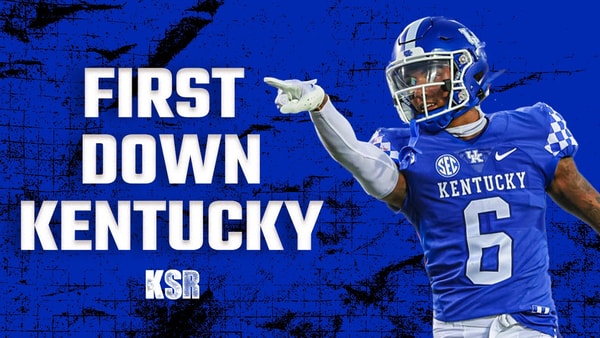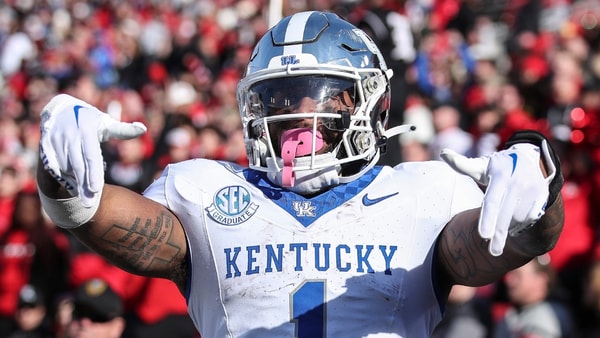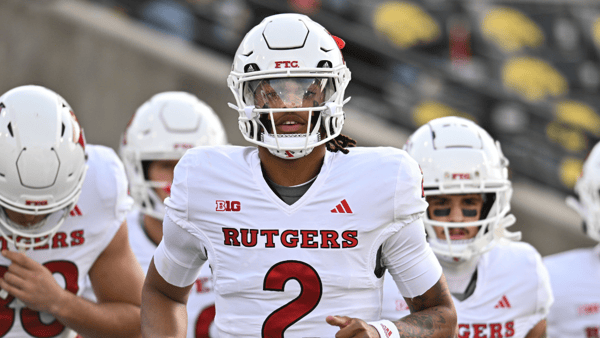
The Grammys don’t matter. It’s important that we all agree to that, here at the beginning. It’s important because, historically speaking, Grammy wins have been used as ammunition in arguments about musical artists’ accomplishments, especially in comparison to other artists. Perhaps this made sense in the past, perhaps it didn’t. I mean, Roger Miller won more Grammys in the 1960s than The Beatles, The Rolling Stones, Ray Charles, Aretha Franklin, Bob Dylan, and, well, every other meaningful musical artist from the 1960s. 2Pac, The Notorious B.I.G., Public Enemy, N.W.A., Nas, Snoop Dogg, and A Tribe Called Quest have combined to win… zero Grammys. Using Grammys to judge historical or artistic significance is like using total number of restaurants to determine who makes the best food.
Which is not to say that there aren’t meaningful conclusions to be drawn from this year’s crop of Grammy nominees. There are. It’s just that none of those conclusions are: “[Insert song/artist/album here] is the best this year had to offer.”
Familiarity counts… a LOT.
Listen, I’m not saying Grammy voters are lazy. What I am saying is that many of them possess the sophistication of those who cast their presidential ballots based on whose campaign signs have the prettiest colors. So, when you look at the nominees in, let’s say “Best Alternative Album,” you’ll find albums from Arcade Fire, The National, LCD Soundsystem, Father John Misty, and Gorillaz. Guess what? All of those artists have been nominated for Grammys before, they’re all established critical darlings, and they all made better records six to ten years ago. Same for Jay-Z and his eight nominations, which is somehow more than Kendrick Lamar got for the infinitely superior DAMN. There are, admittedly, a few curve balls, as in the Best Rock Performance category (I have heard of neither Kaleo or Nothing More). Then again, that category also features two recently deceased artists with massive reputations (Chris Cornell and Leonard Cohen, hilariously), so not exactly groundbreaking across the board.
I admit that it would be disingenuous to paint the Grammys as milquetoast purveyors of the safest possible music to the broadest possible audience and simultaneously get mad at them for not branching out. At the same time, it’s hard not to wish that they would develop at least a moderate degree of self-awareness and be more intentional in their attempts to honor more interesting or innovative, if less established, acts or at least honor them before their prime was well past.
That said, at least the Grammys are more progressive than the Oscars.
For the first time in Grammys history, there are zero white dudes nominated for Album of the Year. I’m sure that this news won’t go over well down at the
Klan Rally to Preserve Our
White Heritage, but it shows that perhaps Grammy voters recognize the most culturally meaningful music being made at the moment is coming from traditionally marginalized groups like women and people of color.
Do I wish Jason Isbell and the 400 Unit had snuck into the Album of the Year category like Sturgill Simpson did last year? Sure, because he makes the kind of music that falls most directly in my wheelhouse. But let’s not pretend that, in 2017, the most visible music award on the planet needs to go to another white guy with a guitar. To quote Isbell, “I’ve heard enough of the white man’s blues; I’ve sang enough about myself.”
It’s true that the Grammys don’t matter in the sense that anyone should feel like their taste has or hasn’t been validated, or that the awards are somehow an objective measure of quality. They are, however, an indication of whose art (and therefore whose perspective) is being afforded space in the public sphere by the people who traditionally guard those gates. And though you could argue that millionaire (or, in the case of Jay-Z, billionaire) musicians aren’t exactly lacking a voice, the people their music is typically written for do lack (and have historically lacked) the representation that records like DAMN., “Awaken, My Love,” and 4:44 might provide, especially when you consider that a white guy has more Rap Album of the Year Grammys than anybody else.
As Always, the Awards Won’t Be the Best Reason to Watch
The awards themselves may not matter, but the same can’t be said for the performances, which have at least the potential to resonate long after the Grammys broadcast ends. I still remember seeing The White Stripes break into their cover of Son House’s “Death Letter” when they were supposed to be playing “Seven Nation Army.” I had listened to their stuff after
Rolling Stone had named Jack White one of the greatest guitarists of all time. I thought they were out of their minds until I saw that performance.
[embed]https://www.youtube.com/watch?v=xi8KdTk0u0g[/embed]
That’s what the Grammys really bring to the table: the chance to be wowed by an artist who’s been given a brief opportunity to show the world what they can do. Sure, some of the performances are dull, predictable, lip-synced affairs, but every year there’s at least one that gets people talking about music as a thing that still has tremendous power, even in our fractured, niche-market culture. Last year it was Beyonce and Chance the Rapper. The year before it was Kendrick’s performance of “Alright.”
We don’t yet know who’s playing at the 2018 award show, but it’s safe to say that there’ll be at least one artist whose performance surprises or impresses you, and that alone is reason enough to pay attention when the Grammys roll around in February.
 The Grammys don’t matter. It’s important that we all agree to that, here at the beginning. It’s important because, historically speaking, Grammy wins have been used as ammunition in arguments about musical artists’ accomplishments, especially in comparison to other artists. Perhaps this made sense in the past, perhaps it didn’t. I mean, Roger Miller won more Grammys in the 1960s than The Beatles, The Rolling Stones, Ray Charles, Aretha Franklin, Bob Dylan, and, well, every other meaningful musical artist from the 1960s. 2Pac, The Notorious B.I.G., Public Enemy, N.W.A., Nas, Snoop Dogg, and A Tribe Called Quest have combined to win… zero Grammys. Using Grammys to judge historical or artistic significance is like using total number of restaurants to determine who makes the best food.
Which is not to say that there aren’t meaningful conclusions to be drawn from this year’s crop of Grammy nominees. There are. It’s just that none of those conclusions are: “[Insert song/artist/album here] is the best this year had to offer.”
Familiarity counts… a LOT.
Listen, I’m not saying Grammy voters are lazy. What I am saying is that many of them possess the sophistication of those who cast their presidential ballots based on whose campaign signs have the prettiest colors. So, when you look at the nominees in, let’s say “Best Alternative Album,” you’ll find albums from Arcade Fire, The National, LCD Soundsystem, Father John Misty, and Gorillaz. Guess what? All of those artists have been nominated for Grammys before, they’re all established critical darlings, and they all made better records six to ten years ago. Same for Jay-Z and his eight nominations, which is somehow more than Kendrick Lamar got for the infinitely superior DAMN. There are, admittedly, a few curve balls, as in the Best Rock Performance category (I have heard of neither Kaleo or Nothing More). Then again, that category also features two recently deceased artists with massive reputations (Chris Cornell and Leonard Cohen, hilariously), so not exactly groundbreaking across the board.
I admit that it would be disingenuous to paint the Grammys as milquetoast purveyors of the safest possible music to the broadest possible audience and simultaneously get mad at them for not branching out. At the same time, it’s hard not to wish that they would develop at least a moderate degree of self-awareness and be more intentional in their attempts to honor more interesting or innovative, if less established, acts or at least honor them before their prime was well past.
That said, at least the Grammys are more progressive than the Oscars.
For the first time in Grammys history, there are zero white dudes nominated for Album of the Year. I’m sure that this news won’t go over well down at the Klan Rally to Preserve Our White Heritage, but it shows that perhaps Grammy voters recognize the most culturally meaningful music being made at the moment is coming from traditionally marginalized groups like women and people of color.
Do I wish Jason Isbell and the 400 Unit had snuck into the Album of the Year category like Sturgill Simpson did last year? Sure, because he makes the kind of music that falls most directly in my wheelhouse. But let’s not pretend that, in 2017, the most visible music award on the planet needs to go to another white guy with a guitar. To quote Isbell, “I’ve heard enough of the white man’s blues; I’ve sang enough about myself.”
It’s true that the Grammys don’t matter in the sense that anyone should feel like their taste has or hasn’t been validated, or that the awards are somehow an objective measure of quality. They are, however, an indication of whose art (and therefore whose perspective) is being afforded space in the public sphere by the people who traditionally guard those gates. And though you could argue that millionaire (or, in the case of Jay-Z, billionaire) musicians aren’t exactly lacking a voice, the people their music is typically written for do lack (and have historically lacked) the representation that records like DAMN., “Awaken, My Love,” and 4:44 might provide, especially when you consider that a white guy has more Rap Album of the Year Grammys than anybody else.
As Always, the Awards Won’t Be the Best Reason to Watch
The awards themselves may not matter, but the same can’t be said for the performances, which have at least the potential to resonate long after the Grammys broadcast ends. I still remember seeing The White Stripes break into their cover of Son House’s “Death Letter” when they were supposed to be playing “Seven Nation Army.” I had listened to their stuff after Rolling Stone had named Jack White one of the greatest guitarists of all time. I thought they were out of their minds until I saw that performance.
[embed]https://www.youtube.com/watch?v=xi8KdTk0u0g[/embed]
That’s what the Grammys really bring to the table: the chance to be wowed by an artist who’s been given a brief opportunity to show the world what they can do. Sure, some of the performances are dull, predictable, lip-synced affairs, but every year there’s at least one that gets people talking about music as a thing that still has tremendous power, even in our fractured, niche-market culture. Last year it was Beyonce and Chance the Rapper. The year before it was Kendrick’s performance of “Alright.”
We don’t yet know who’s playing at the 2018 award show, but it’s safe to say that there’ll be at least one artist whose performance surprises or impresses you, and that alone is reason enough to pay attention when the Grammys roll around in February.
The Grammys don’t matter. It’s important that we all agree to that, here at the beginning. It’s important because, historically speaking, Grammy wins have been used as ammunition in arguments about musical artists’ accomplishments, especially in comparison to other artists. Perhaps this made sense in the past, perhaps it didn’t. I mean, Roger Miller won more Grammys in the 1960s than The Beatles, The Rolling Stones, Ray Charles, Aretha Franklin, Bob Dylan, and, well, every other meaningful musical artist from the 1960s. 2Pac, The Notorious B.I.G., Public Enemy, N.W.A., Nas, Snoop Dogg, and A Tribe Called Quest have combined to win… zero Grammys. Using Grammys to judge historical or artistic significance is like using total number of restaurants to determine who makes the best food.
Which is not to say that there aren’t meaningful conclusions to be drawn from this year’s crop of Grammy nominees. There are. It’s just that none of those conclusions are: “[Insert song/artist/album here] is the best this year had to offer.”
Familiarity counts… a LOT.
Listen, I’m not saying Grammy voters are lazy. What I am saying is that many of them possess the sophistication of those who cast their presidential ballots based on whose campaign signs have the prettiest colors. So, when you look at the nominees in, let’s say “Best Alternative Album,” you’ll find albums from Arcade Fire, The National, LCD Soundsystem, Father John Misty, and Gorillaz. Guess what? All of those artists have been nominated for Grammys before, they’re all established critical darlings, and they all made better records six to ten years ago. Same for Jay-Z and his eight nominations, which is somehow more than Kendrick Lamar got for the infinitely superior DAMN. There are, admittedly, a few curve balls, as in the Best Rock Performance category (I have heard of neither Kaleo or Nothing More). Then again, that category also features two recently deceased artists with massive reputations (Chris Cornell and Leonard Cohen, hilariously), so not exactly groundbreaking across the board.
I admit that it would be disingenuous to paint the Grammys as milquetoast purveyors of the safest possible music to the broadest possible audience and simultaneously get mad at them for not branching out. At the same time, it’s hard not to wish that they would develop at least a moderate degree of self-awareness and be more intentional in their attempts to honor more interesting or innovative, if less established, acts or at least honor them before their prime was well past.
That said, at least the Grammys are more progressive than the Oscars.
For the first time in Grammys history, there are zero white dudes nominated for Album of the Year. I’m sure that this news won’t go over well down at the Klan Rally to Preserve Our White Heritage, but it shows that perhaps Grammy voters recognize the most culturally meaningful music being made at the moment is coming from traditionally marginalized groups like women and people of color.
Do I wish Jason Isbell and the 400 Unit had snuck into the Album of the Year category like Sturgill Simpson did last year? Sure, because he makes the kind of music that falls most directly in my wheelhouse. But let’s not pretend that, in 2017, the most visible music award on the planet needs to go to another white guy with a guitar. To quote Isbell, “I’ve heard enough of the white man’s blues; I’ve sang enough about myself.”
It’s true that the Grammys don’t matter in the sense that anyone should feel like their taste has or hasn’t been validated, or that the awards are somehow an objective measure of quality. They are, however, an indication of whose art (and therefore whose perspective) is being afforded space in the public sphere by the people who traditionally guard those gates. And though you could argue that millionaire (or, in the case of Jay-Z, billionaire) musicians aren’t exactly lacking a voice, the people their music is typically written for do lack (and have historically lacked) the representation that records like DAMN., “Awaken, My Love,” and 4:44 might provide, especially when you consider that a white guy has more Rap Album of the Year Grammys than anybody else.
As Always, the Awards Won’t Be the Best Reason to Watch
The awards themselves may not matter, but the same can’t be said for the performances, which have at least the potential to resonate long after the Grammys broadcast ends. I still remember seeing The White Stripes break into their cover of Son House’s “Death Letter” when they were supposed to be playing “Seven Nation Army.” I had listened to their stuff after Rolling Stone had named Jack White one of the greatest guitarists of all time. I thought they were out of their minds until I saw that performance.
[embed]https://www.youtube.com/watch?v=xi8KdTk0u0g[/embed]
That’s what the Grammys really bring to the table: the chance to be wowed by an artist who’s been given a brief opportunity to show the world what they can do. Sure, some of the performances are dull, predictable, lip-synced affairs, but every year there’s at least one that gets people talking about music as a thing that still has tremendous power, even in our fractured, niche-market culture. Last year it was Beyonce and Chance the Rapper. The year before it was Kendrick’s performance of “Alright.”
We don’t yet know who’s playing at the 2018 award show, but it’s safe to say that there’ll be at least one artist whose performance surprises or impresses you, and that alone is reason enough to pay attention when the Grammys roll around in February.







Discuss This Article
Comments have moved.
Join the conversation and talk about this article and all things Kentucky Sports in the new KSR Message Board.
KSBoard